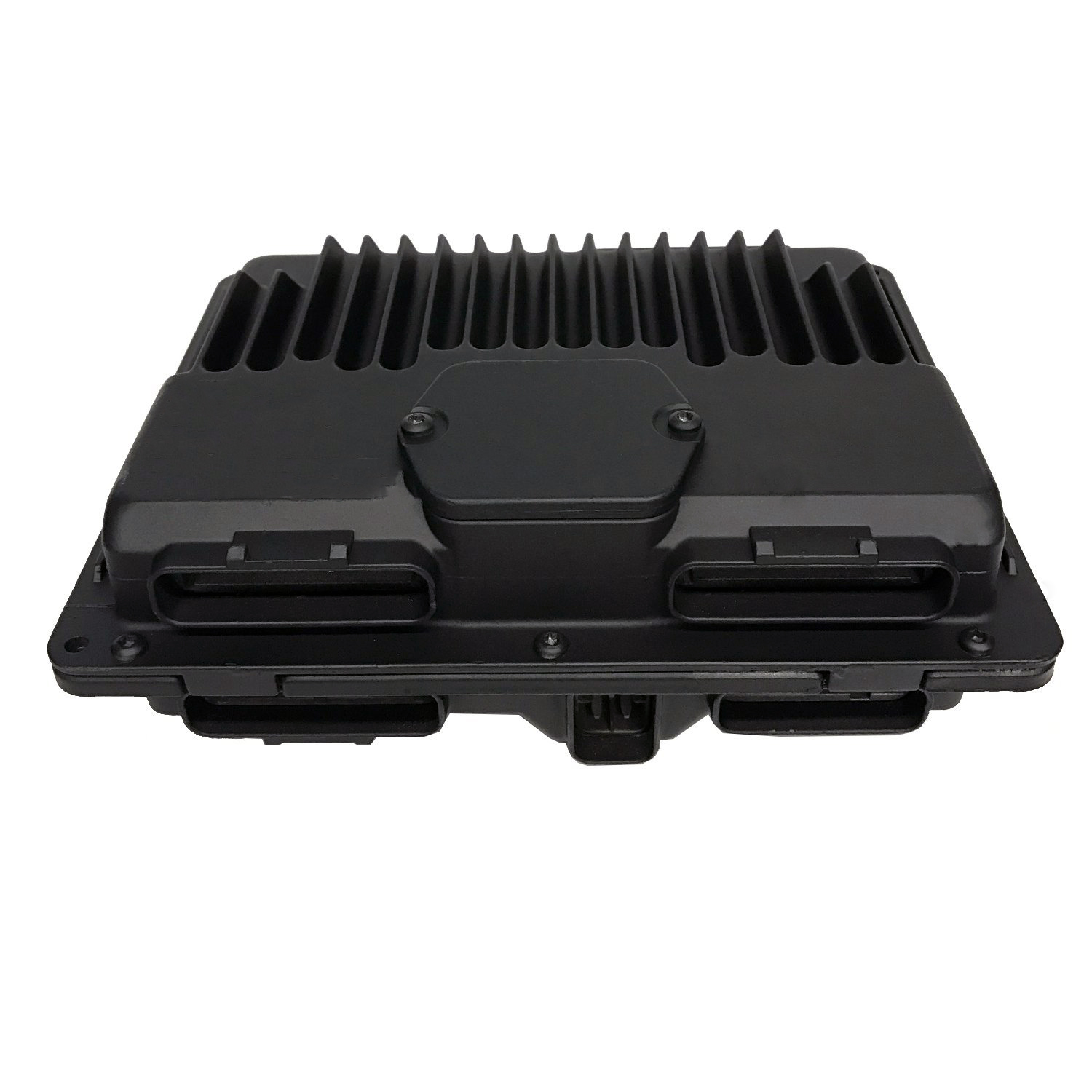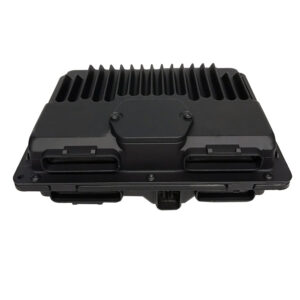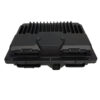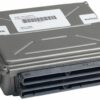Restore Peak Performance to Your GM Truck or Van
As a technician with over two decades of experience, I’ve seen firsthand how a failing Powertrain Control Module (PCM) can bring a perfectly good truck to its knees. If your 1999-2000 GMC 3500 Pickup is suffering from baffling electrical gremlins, poor performance, or won’t start reliably, the PCM is often the culprit. This isn’t just a part; it’s the brain of your vehicle’s engine and transmission, and when it falters, everything else does too. This replacement PCM, part number 16265035, is the definitive solution to get your workhorse running like it should.
What sets this module apart is our commitment to a hassle-free repair. We don’t just ship you a box. We take your vehicle’s VIN and flash this module with the latest, most stable software directly from GM. This means it arrives at your door ready to install, saving you a costly trip to the dealership and the headache of programming fees. This is the same process we use in the shop to ensure a reliable, long-lasting fix for our customers. By choosing this pre-programmed 1999-2000 GMC 3500 PCM, you’re not just buying a part—you’re getting a complete, ready-to-go solution.
From the Diagnostic Bay: The Hard-to-Find No-Start
A customer brought in his ’00 Chevy 2500, a work truck that had to be reliable. The problem was maddening: it would start fine cold, but after running for 30 minutes and shutting it off, it was a 50/50 chance it would restart. No check engine light, no obvious codes. After checking fuel pressure and spark, which were fine when it was running, I suspected a heat-soak issue with the electronics. On a hunch, I carefully heated the original PCM with a heat gun. Sure enough, the truck refused to start. After it cooled, it fired right up. The internal circuits were failing under heat. We installed one of our VIN-programmed PCMs, and the problem was solved instantly. It’s a classic failure I’ve seen dozens of times on these otherwise bulletproof trucks.
Is Your Truck Exhibiting These PCM Failure Signs?
A failing PCM can manifest in many ways, from obvious to subtle. If you’re experiencing any of the following, it’s time to consider a replacement:
- ✔ Unexplained Check Engine Light (CEL) with codes like P0601, P0604, or P0606.
- ✔ Engine stalling, stumbling, or misfiring for no apparent reason.
- ✔ Harsh or erratic automatic transmission shifting.
- ✔ The vehicle won’t start, but the battery and starter are good (intermittent no-start).
- ✔ Noticeable decrease in fuel economy.
- ✔ Failure to pass an emissions test.
- ✔ Communication errors with diagnostic scan tools.
Your Step-by-Step PCM Installation Guide
Installing your new 1999-2000 GMC 3500 PCM is a straightforward job for a confident DIYer. Follow these steps carefully for a smooth installation.
- Safety First: Disconnect the negative terminal from your vehicle’s battery and secure it away from the post to prevent accidental contact.
- Locate the PCM: On most of these trucks and vans, the PCM is located in the engine compartment, typically on the driver’s side fender, sometimes under the battery tray.
- Disconnect the Wiring Harnesses: Carefully unclip and disconnect all electrical connectors from the old PCM. These connectors have locking tabs; do not force them. Inspect the connectors for any corrosion or damage.
- Remove the Old Module: Unbolt the old PCM from its mounting bracket. Keep the hardware as you may need to reuse it.
- Install the New Module: Mount your new, pre-programmed PCM onto the bracket and secure it with the original hardware.
- Reconnect Everything: Firmly plug the wiring harnesses back into the new PCM until they click into place. Reconnect the negative battery terminal.
- Perform Security Relearn (If Necessary): In many cases, you will need to perform a simple security relearn procedure. Turn the key to the ‘ON’ position for 10-15 minutes, then ‘OFF’ for 10 seconds. Repeat this cycle 3 times. On the fourth try, the vehicle should start, and the security light will be off.
Guaranteed Compatibility for Your Vehicle
This module is a direct replacement for part numbers 16263494, 16265035, 8162634940, 218-11787, and 21811787. It is confirmed to fit the following vehicles. Please verify your specific model and options.
CHEVROLET 2500 PICKUP 99-00 (Gasoline)
CHEVROLET 3500 PICKUP 99-00 (Gasoline)
SILVERADO 1500 PICKUP 99-00 (4.3L V6)
TAHOE 99-00 (Classic Style)
SUBURBAN 1500/2500 99 (Gasoline)
GMC 1500 PICKUP 99 (5.0L, 5.7L)
GMC 2500 PICKUP 99-00 (Gasoline)
GMC 3500 PICKUP 99-00 (Gasoline)
SIERRA 1500 PICKUP 99-00 (4.3L V6)
YUKON 99-00 (Includes Denali)
ESCALADE 99-00
ASTRO 99-01
SAFARI (GMC) 99-01
BLAZER S10/JIMMY S15 98-00
S10/S15/SONOMA 98-00 (4.3L)
BRAVADA 98-00
ENVOY 98-00
ISUZU HOMBRE 98-00 (4.3L)
EXPRESS 1500/2500/3500 VAN 99-02 (Gasoline)
SAVANA 1500/2500/3500 VAN 99-02 (Gasoline)
Frequently Asked Questions About Your 1999-2000 GMC 3500 PCM
Do I really need to provide my VIN?
Do I really need to provide my VIN?
Yes, absolutely. Providing your VIN is critical. We use it to program the module with the correct software and calibrations for your specific vehicle’s engine, transmission, and options. This ensures compatibility and proper function right out of the box.
Is any additional programming required after installation?
Do I really need to provide my VIN?
Yes, absolutely. Providing your VIN is critical. We use it to program the module with the correct software and calibrations for your specific vehicle’s engine, transmission, and options. This ensures compatibility and proper function right out of the box.
Will this fix my check engine light?
Do I really need to provide my VIN?
Yes, absolutely. Providing your VIN is critical. We use it to program the module with the correct software and calibrations for your specific vehicle’s engine, transmission, and options. This ensures compatibility and proper function right out of the box.
How do I find my original part number to confirm a match?
Do I really need to provide my VIN?
Yes, absolutely. Providing your VIN is critical. We use it to program the module with the correct software and calibrations for your specific vehicle’s engine, transmission, and options. This ensures compatibility and proper function right out of the box.



